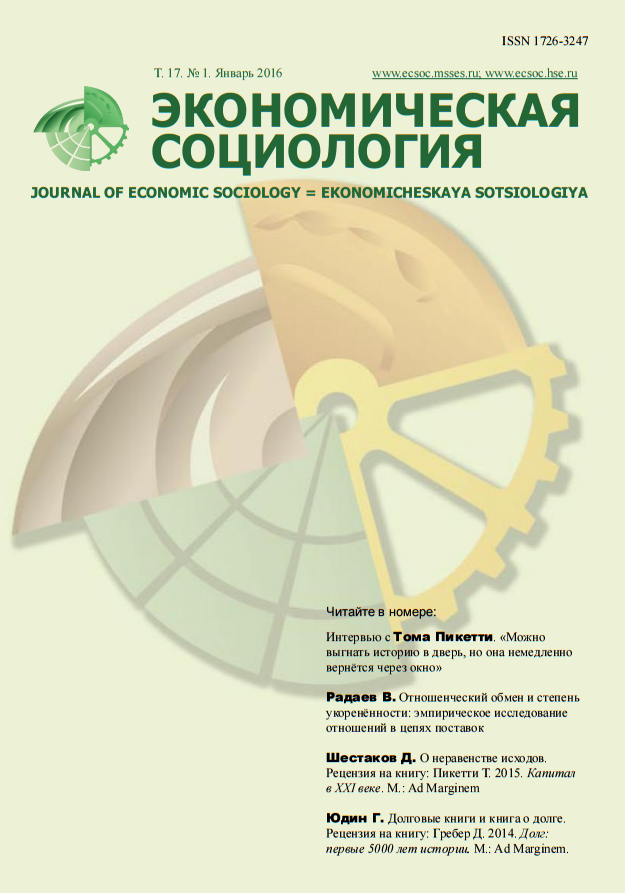Interview with Thomas Piketty: “One can Push History Out but It Immediately Comes in through the Window”
Abstract
Thomas Piketty, Professor of Economics at the EHESS and at the Paris School of Economics, was interviewed by Olessia Kirtchik, Leading Research Fellow at the Poletayev Institute for Theoretical and Historical Studies in the Humanities at the Higher School of Economics. The interview was conducted during Prof. Piketty’s visit to Moscow in November 2015 when he gave lectures and introduced the Russian translation of his book Capital in the Twenty-First Century (Moscow: Ad Marginem Press, 2015). The Piketty's lecture at Higher School of Economics was arranged by the Laboratory for Studies in Economic Sociology (HSE) and the Franco-Russian Research Center in Moscow with support from the French Embassy and French University College in Moscow.
In the interview, Prof. Piketty expressed his skepticism about economists’ tendencies toward using formal models. Early on, he recognized the limits of an economic approach that was applied in ignorance of history. This profoundly affected his future academic career. He admits that his successful research on inequality was possible only in cooperation with other social disciplines. In addition, Prof. Piketty talked about main ideas of his book Capital in the Twenty-First Century and its restrictions. In particular, he pointed out that there has been insufficient attention toward economic growth.In his opinion, in order to explain economic growth, one should take into account historical perspective and analyze government’s policies toward public education and the health system. The French economist also noted his intention to reconcile Karl Marx and Pierre Bourdieu’s conflicting views on a relationship between economic and cultural forms of inequality.













